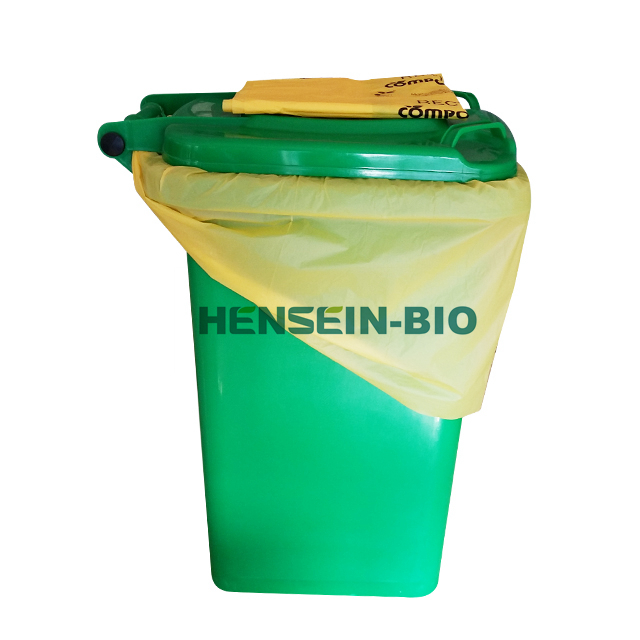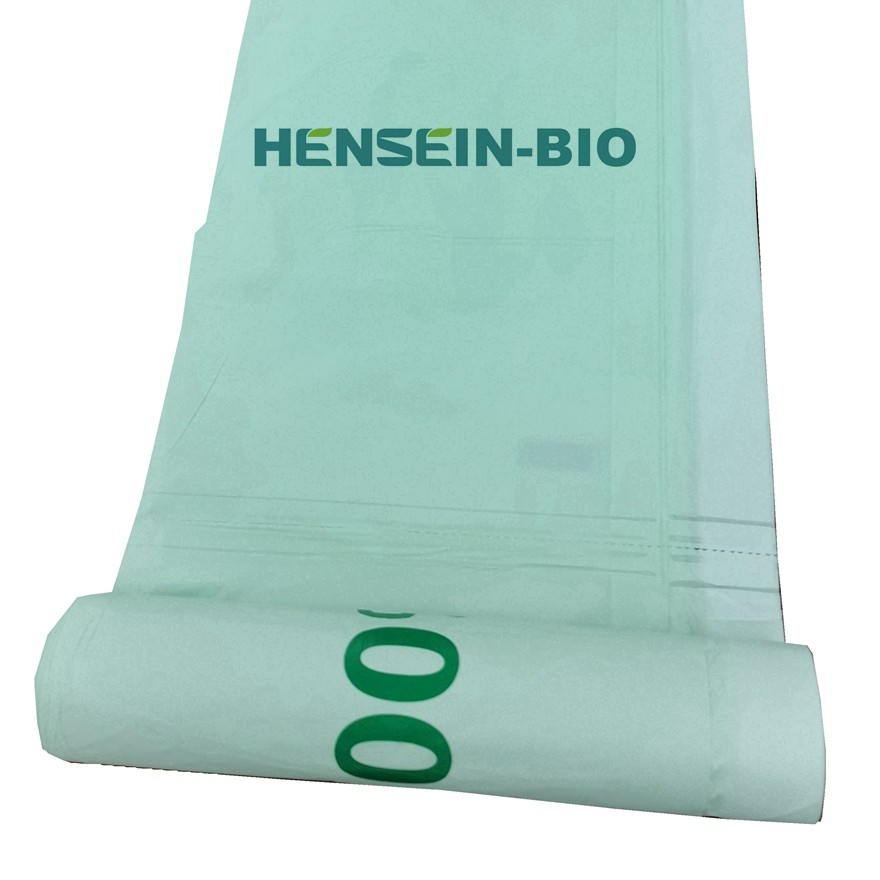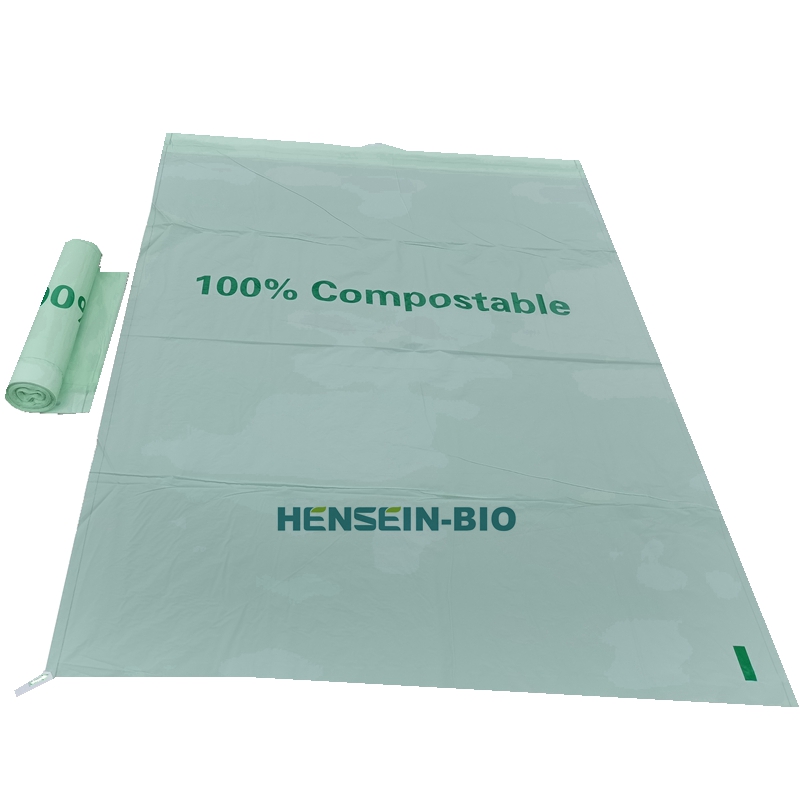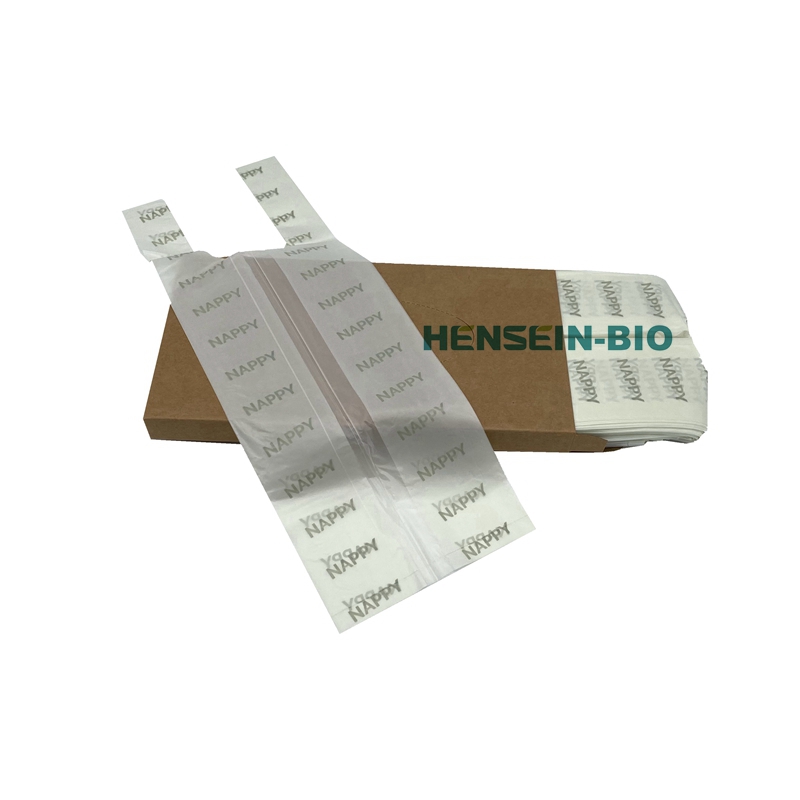
Why Do Conventional Plastic Bags Harm Our Future?
For years, households and businesses have relied on traditional plastic bags, but have you ever wondered why they accumulate in landfills and oceans for centuries without breaking down? The overuse of these plastics contributes to pollution, harms wildlife, and worsens climate change. At the same time, many buyers face challenges in identifying reliable suppliers and ensuring certified, high-quality eco-friendly alternatives. This creates uncertainty for companies trying to reduce environmental footprints while balancing costs. Fortunately, the solution lies in biodegradable garbage bags, manufactured with advanced materials like PLA, PHA, and starch blends. Companies such as Hensein-Bio offer trusted wholesale options, global certifications, customizable designs, and reliable delivery—helping businesses meet sustainability goals without compromise.
Biodegradable garbage bags are eco-friendly alternatives to traditional plastics, made from materials like PLA, PHA, and starch blends. They degrade faster, meet certifications such as ASTM D6400, and reduce landfill waste, making them the best biodegradable trash bags for environmentally responsible companies and suppliers.
To better understand why these materials matter, let’s explore what biodegradable garbage bags are made of, how compostable trash bags work, and whether they truly deliver on environmental promises.
What Are Biodegradable Garbage Bags Made Of?
Biodegradable garbage bags are made from renewable and naturally derived polymers instead of petroleum-based plastics. Three of the most common materials include polylactic acid (PLA), polyhydroxyalkanoates (PHA), and starch blends. PLA is derived from fermented plant starch, often corn or sugarcane, and is valued for its clarity and strength. PHA, produced through microbial fermentation, is fully biodegradable in soil, water, and marine environments, making it one of the most sustainable polymers available. Starch blends, often combined with biodegradable polyesters, are popular for their cost-effectiveness and versatility.
Each material has unique attributes. PLA-based bags are lightweight and durable but generally require industrial composting for complete degradation. PHA has superior biodegradability but is more expensive, making it suitable for premium wholesaler or niche applications. Starch blends balance affordability and performance, often serving as the most practical choice for manufacturers supplying supermarkets or retail chains. Importantly, these materials are designed to degrade in months or years—compared to the centuries it takes for conventional plastics.
Can You Explain What Compostable Trash Bags Are?
Compostable trash bags are a specific category of biodegradable bags that meet strict environmental standards such as ASTM D6400 (United States) or EN 13432 (Europe). These certifications ensure that bags not only disintegrate under composting conditions but also produce no harmful residues. For example, when tested, a certified compostable bag must degrade into carbon dioxide, water, and biomass within 180 days under controlled composting.
Compared to ordinary biodegradable bags, which may only break into smaller fragments, compostable bags fully return to the soil without contributing to microplastic pollution. Businesses sourcing from a trusted supplier like Hensein-Bio can ensure their products carry these certifications, meeting regulatory demands in markets across Europe, North America, and Australia. For clients, this guarantees compliance, credibility, and consumer trust when marketing eco-friendly solutions.
Compostable bags are particularly valuable for food waste collection, since they are compatible with organic recycling systems. A biodegradable garbage bag 13 gallon size, for instance, fits most household bins, making it ideal for everyday kitchen use while still meeting international sustainability standards.
Are Compostable Bags Environmentally Friendly?
The environmental benefits of compostable bags extend beyond waste reduction. First, they minimize reliance on fossil fuels by using renewable feedstocks like corn or cassava starch. Second, their faster degradation rate—often under six months in industrial composting facilities—reduces landfill burden and greenhouse gas emissions. Third, when properly certified, compostable bags ensure no toxic residues remain in the soil or water, unlike conventional plastics that release harmful chemicals as they degrade.
Durability is another factor to consider. High-quality compostable bags maintain strength and leak resistance, which is essential for both household users and large-scale commercial buyers. Poorly made bags can tear easily, leading to customer dissatisfaction and wasted resources. This is why sourcing from an experienced manufacturer and supplier like Hensein-Bio matters—ensuring the balance between functionality and eco-performance. Their six production lines and global distribution network guarantee timely delivery and customizable branding options for wholesalers and retailers worldwide.
Ultimately, compostable bags represent one of the most practical steps businesses and consumers can take to transition toward sustainability. By choosing the best biodegradable trash bags, companies not only reduce environmental harm but also enhance their brand’s reputation in a market increasingly driven by eco-conscious decisions.
Biodegradable garbage bags offer certified, sustainable, and functional alternatives to plastics—helping businesses and households align with environmental goals while ensuring durability and compliance worldwide.


